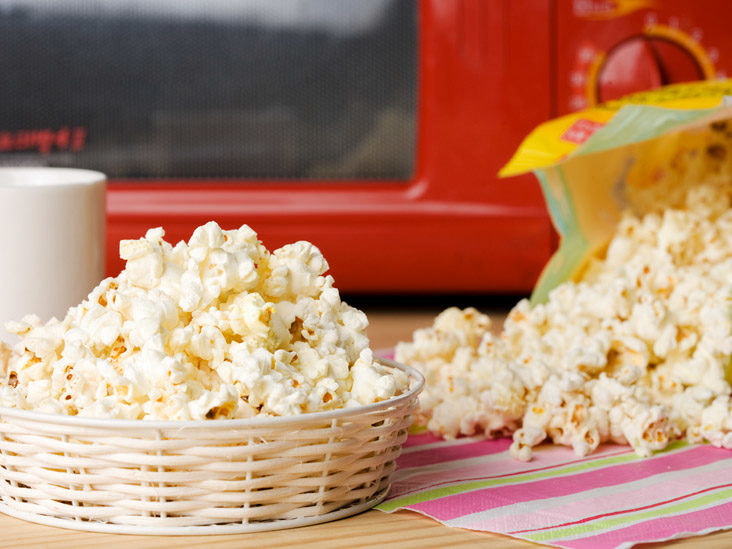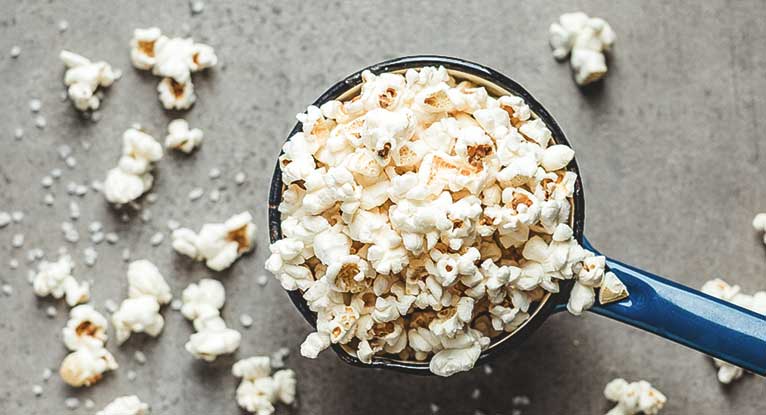How Long Does Popped Popcorn Last? Does It Taste Bad?

The next film is approaching, and popcorn is a requirement. Most folks can’t imagine not having it when they go to the movies. Popcorn these days has a huge variety of flavors, such as salty, sweet, chocolate, “Coca-Cola,” “Strawberry with Cream,” and “Pina Colada.”
But what if you’ve made or purchased an excessive amount of popped popcorn? How long can the popcorn be stored? Is it possible that it will deteriorate with time?
This article has all of the answers and suggestions for producing perfect popcorn as a bonus.
So, how long does popcorn last after it’s been popped? It all relies on your appetite and how much popcorn you enjoy. Popcorn does not go bad or spoil quickly. It, too, does not persist indefinitely, particularly in terms of taste. Popcorn has a two-week shelf life after opening the bag or cooking it yourself.
If you buy ready-to-eat popcorn, look for the “best by” date, which is normally two to three months after the date of manufacture. Is the flavor going to be the same? No, it will dry up and lose its flavor with time, so it’s preferable to eat it as soon as possible.
What about microwaveable packages’ shelf life?
It usually takes 3 to 4 months. Of course, the flavor will vary over time, but it is still worth cooking as long as it is kept sealed.
You should consume the entire package of popped popcorn in one sitting if you want the greatest quality.

What is the best way to store popcorn?
Popcorn’s shelf life is determined by its flavor and kind. Salty popcorn made with natural ingredients, for example, will only last a few hours in the open air at moderate humidity. Sweet and cheese popcorn is the same way. They quickly lose their freshness. Things are a little better with caramelized popcorn. Because the caramel mixture covers the entire popcorn, access to humidity is limited. However, this does not imply that it is impenetrable. It will only stay fresh for one day if stored outside in the open air.
If we’re talking about sealed packaging, salted popcorn has a shelf life of one month, sweet and cheese popcorn has two months, and caramelized popcorn has a shelf life of up to six months.
Corn grains, both hard and dry, contain about 13% moisture. As the temperature rises, moisture begins to expand, and, as a result, the exterior hard layer fractures.
Remember that if you store uncooked popcorn in an airtight container, it will keep its moisture. A packet like this can be frozen or kept in the refrigerator.
If the fried popcorn is not greased, it must be kept for a maximum of two weeks in a sealed plastic bag at room temperature.
Place the popcorn in the refrigerator if you have already oiled it. To reheat the popcorn, set it on a baking pan and bake for 10 minutes at a temperature of 320 degrees Fahrenheit.
Remember to keep popped popcorn in the dark spot because the oil in the corn grains will begin to rancidify if exposed to direct sunshine.
Is it possible for the popcorn to go bad? How can you tell if popcorn has gone bad?
Popcorn may be kept fresh for a long time if properly stored. One of the most likely results is that the flavor of the popcorn will be lost. It won’t grow mold or anything until there’s moisture involved, which is why it’s best to keep them fried and not oiled.
If you’re using microwaveable packets, make sure you open them completely before popping them. After the popcorn is done, you can inspect the quality. If the popcorn appears to be stale, smells wrong, or tastes sour, or if you discover anything unexpected, toss it out! Don’t jeopardize your health!

How to keep your homemade popcorn fresh?
Here are some techniques for storing homemade popcorn such that it stays fluffy and crispy even after a few days.
Step 1: Do not season the popcorn. You can pop kernels without dressing on the stove or in the microwave. To avoid making popcorn soggy or chewy, don’t drizzle it with oil, season it with salt, or add flavorings.
Step 2: Make sure the popcorn is completely cool before continuing. Remember that it should be stored without moisture, and if you try to store warm popcorn, the moisture will be trapped, resulting in mushy popped popcorn.
Step 3: Put the popcorn in an airtight container. To reduce the air in your box, try to fill it to the top. You can also use a sealable plastic bag, but make sure it’s empty.
Step 4: Keep the popped popcorn for up to two weeks at room temperature. To avoid moisture, don’t refrigerate your popcorn.
Step 5: Season popcorn before eating it. Combine popped popcorn with melted butter and salt for a classic flavor.
How to bring stale popcorn back to life
Step 1: Spread the popcorn on a baking sheet after preheating the oven to 250 degrees Fahrenheit. We recommend using a baking pan with higher sides to prevent the popcorn from sliding off.
Step 2: Pop the popcorn in the microwave for 5 minutes. After that, check to see whether it has crisped up again, and if not, leave it for another 5 minutes.
Step 3: Season the popcorn that has been heated. Add melted butter and salt to taste along with cheese, curry, and other species.

Popcorn’s advantages
Popcorn is “blown up” corn grains and is therefore not dangerous. However, the quality of the oil (and, in particular, how many times it has been used) and artificial additives are precisely what precludes children from eating store-bought popcorn.
It’s much better to give kids homemade popcorn, which is safer and more delicious. Purchased corn grains for self-cooking popcorn should be sold in paper bags rather than PVC bags since PVC bags can release harmful chemical compounds.
- Popcorn is manufactured from whole corn grains high in coarse fibers, which help keep blood glucose levels constant.
- Popcorn includes a high level of folic acid, which aids in the body’s hematopoiesis process.
- Popcorn consumption reduces the risk of certain forms of cancer formation due to the presence of fiber in the product.
- The fibers in coarse popcorn are good for the digestive system and can even help you lose weight.
- Popcorn has a lot of antioxidants, notably in the form of polyphenols, which protect our cells from being destroyed.
- These beneficial characteristics help prevent diabetes, heart disease, cancer, and other diseases.
Many people link going to the cinema with eating popcorn. However, before purchasing this item, keep in mind that it may contain dangerous components and be outdated. Consequently, it is vital to select the appropriate product to avoid serious health consequences.











